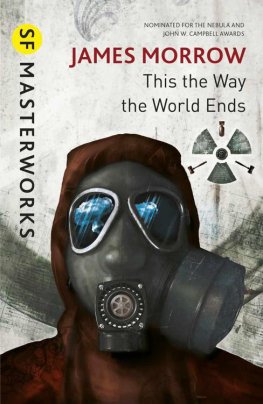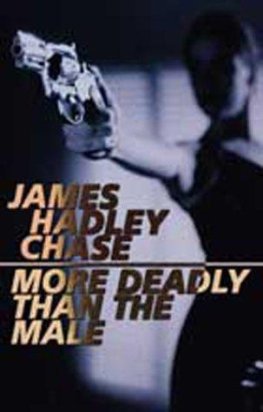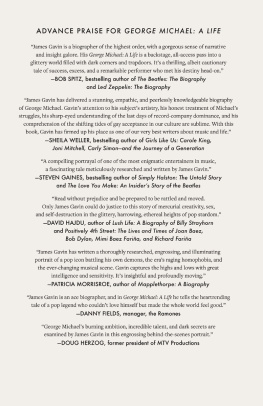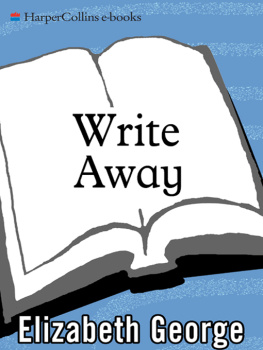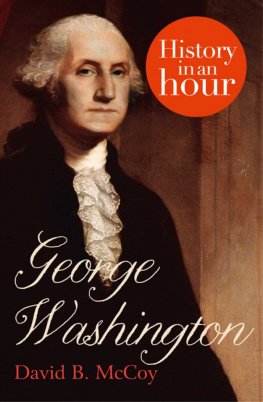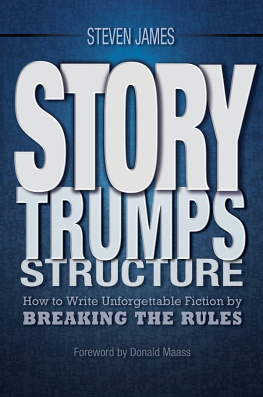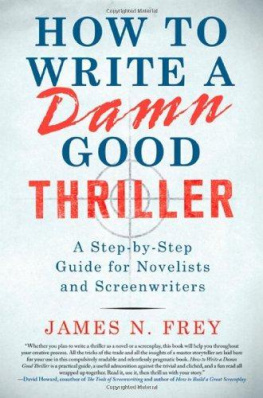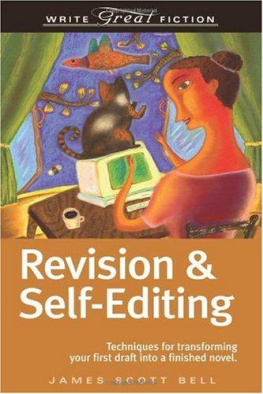James George - History Write Now
Here you can read online James George - History Write Now full text of the book (entire story) in english for free. Download pdf and epub, get meaning, cover and reviews about this ebook. year: 2015, publisher: Manukau Counties Writers Fund, genre: Detective and thriller. Description of the work, (preface) as well as reviews are available. Best literature library LitArk.com created for fans of good reading and offers a wide selection of genres:
Romance novel
Science fiction
Adventure
Detective
Science
History
Home and family
Prose
Art
Politics
Computer
Non-fiction
Religion
Business
Children
Humor
Choose a favorite category and find really read worthwhile books. Enjoy immersion in the world of imagination, feel the emotions of the characters or learn something new for yourself, make an fascinating discovery.
- Book:History Write Now
- Author:
- Publisher:Manukau Counties Writers Fund
- Genre:
- Year:2015
- Rating:5 / 5
- Favourites:Add to favourites
- Your mark:
- 100
- 1
- 2
- 3
- 4
- 5
History Write Now: summary, description and annotation
We offer to read an annotation, description, summary or preface (depends on what the author of the book "History Write Now" wrote himself). If you haven't found the necessary information about the book — write in the comments, we will try to find it.
History Write Now — read online for free the complete book (whole text) full work
Below is the text of the book, divided by pages. System saving the place of the last page read, allows you to conveniently read the book "History Write Now" online for free, without having to search again every time where you left off. Put a bookmark, and you can go to the page where you finished reading at any time.
Font size:
Interval:
Bookmark:

at the Papakura Museum
Edited by James George
This book was funded by the Manukau Counties Writers Fund and the Auckland Council Creative Communities Scheme with support from the Papakura Museum.
First ePub Edition Published in 2015
Published by
Manukau Counties Writers Fund
20 Hoylake Place
Manurewa
Auckland 2103
New Zealand
ISBN 978-0-473-32915-0
2015 held by the individual authors
The moral rights of the authors have been asserted
All rights reserved. With the exception of short excepts quoted for review purposes, no part of this publication may be reproduced, stored in a retrieval system or transmitted in any form or by any means, electronic, mechanical, including photocopying, recording, information storage or otherwise without prior written permission from the publisher.
Photo of Manurewa biplane: A N Breckon (reproduced with the permission of Auckland War Memorial Museum Tmaki Paenga Hira. PH-NEG-B790)
Photo of Washday: W H Marsh (reproduced with the permission of Albertland Heritage Centre)
Cover photograph: Ken Watkin
All other photography: Ken Watkin
Layout and cover design: DIY Publishing Ltd
Storytelling existed long before writing.
Good stories seep into our hearts as well as our minds. Whether told by the 'oral historian' of a tribe in ancient times, in cave drawings or dance or music, or via digital blogs, humans use stories to connect with their past and as a way of retaining their traditions and culture.
For the same reasons, museums also tell stories with their collections of artefacts and taonga (treasures). While museums strive for historical accuracy, I've sometimes wondered what sorts of adventures these objects might have had that we don't know about. As yet, we haven't invented an artefact-whispering machine but we have writers with imaginations and that seemed like a great place to start.
I talked over these ideas with Terry Carson (fellow writer and President of the Papakura District Historical Society) and Kay Thomas (Manager of the Papakura Museum), and the History Write Now Project was born.
Author James George came on board as the project's writing coach and mentor and funding was sourced from the Manukau Counties Writers Fund and Auckland Council Creative Communities Scheme.
South Auckland writers were then invited into the Papakura Museum to fossick behind the scenes and in the archives to choose an artifact/taonga to write about. Many attended one of two workshops with James so he could help them to hone their craft, to consider their historical object in a fresh way and to imagine a new and wonderful tale about it.
When the submissions rolled in for the History Write Now book, I was struck by the powerful and recurring theme of migration. Aotearoa/New Zealand is a land of migrants. All who live here have heritage and culture that can be traced back to 'somewhere else', whether they arrived yesterday or 900 years ago. Half of the stories and poems included in this book are about the fears, hopes or dreams of most migrants. Some are told as if by a child, others from the view of an adult, and still others from the perspective of one of the few precious possessions that came with them.
Other pieces are based on memories of real life events or people. However, all of the pieces in this book, whether fiction, creative non-fiction or poetry, prove again that we use storytelling as a way to connect with our past and that we are living examples of history right now.
Huge thanks and appreciation to James George, dedicated writing mentor and editor of this book. James' teaching and support has been inspirational and his ability to build confidence in the writers involved in this project has been remarkable.
I would also like to particularly thank the following for their skills, patience, enthusiasm and unwavering support: Terry Carson, Kay Thomas and the whole team from Papakura Museum, Ken Watkin for photographing the artefacts, the staff from The Sir Edmund Hillary Library, the South Auckland Writers Group, and Lis Sowerbutts and Kris Lockett (from DIY Publishing). Without these people and funding from Auckland Council Creative Communities Scheme and the Manukau Counties Writers Fund this project could not have happened.
Lastly, I would like to compliment the 18 writers in this book, some of whom are very new writers, for having the courage to submit their work and for their prompt and uncomplaining responses during the editing process, which is never easy for any writer. Most of all, I'd like to thank them for their wonderful stories and poems.
Jocelyn Watkin
History Write Now Project Manager
July 2015

Black, wooden sea chest, donated to Papakura Museum in 1977 by a Mrs Bates. (The Bates family settled in the Papakura district.)
For the want of anywhere more comfortable to sit, I perched on my trunk observing the ships tied up at the East India Docks. With their sails furled, they put me in mind of a forest of leafless trees. It was hard to believe Robert and I were leaving England, leaving home, on one of those ships. Even after months of planning I still felt like an observer of the event, not a participant. But it was true. Roberts menswear shop was sold, our house likewise, and we were indeed going to Auckland, New Zealand, to open a store in a village called Papakura.
Robert was off securing our cabin and arranging for the trunks to be taken on board. I kicked my heels against the side of my trunk and thought of the miserably few items it contained. Dresses, petticoats, stockings and shoes, were essential but unexciting items to take to the new world. More pleasingwere the several novels by my favourite authors, squeezed in amongst my clothes. Left behind because he was too fat to fit was dear William Shakespeare, The Complete Works. To take in his place a pair of sturdy boots had been for me, the hardest thing. Robert said there would be books in Papakura but I had my doubts.
Through a gap in the crowd, I saw Robert beckoning. Leaving my trunk to the ministrations of the crew, I crossed the boards leading on to the ship and followed Robert down to our cabin. He looked anxious, and no wonder! This was where we were to live for the next three months. How had so much been fitted into such a small area? As well as bunks, the cabin provided a washstand, a table, chairs and a cupboard.
Two men struggled in with Roberts trunk and placed it at the end of his bunk. It was going to be a tight fit to accommodate my trunk as well. We awaited its arrival but after several minutes, it remained undelivered. Knowing we were about to sail, and with the thought of Jane Austen languishing forever on the dock, I panicked, ran from the cabin with Robert close behind. Someone was shouting, All ashore whos going ashore!
It was as Id feared. From the ships rail, I saw my trunk, suddenly my most precious possession, still on the dock. Robert approached an officer and thankfully the situation was saved. With Roberts hand holding mine, we watched England fade from view. The wind picked up, filling the sails and chilling the air. Returning to the cabin I saw that despite the clutter, it was lifeless and without character. Rummaging in my trunk, I found a crimson shawl to spread across its surface added the recently rescued
Next pageFont size:
Interval:
Bookmark:
Similar books «History Write Now»
Look at similar books to History Write Now. We have selected literature similar in name and meaning in the hope of providing readers with more options to find new, interesting, not yet read works.
Discussion, reviews of the book History Write Now and just readers' own opinions. Leave your comments, write what you think about the work, its meaning or the main characters. Specify what exactly you liked and what you didn't like, and why you think so.


